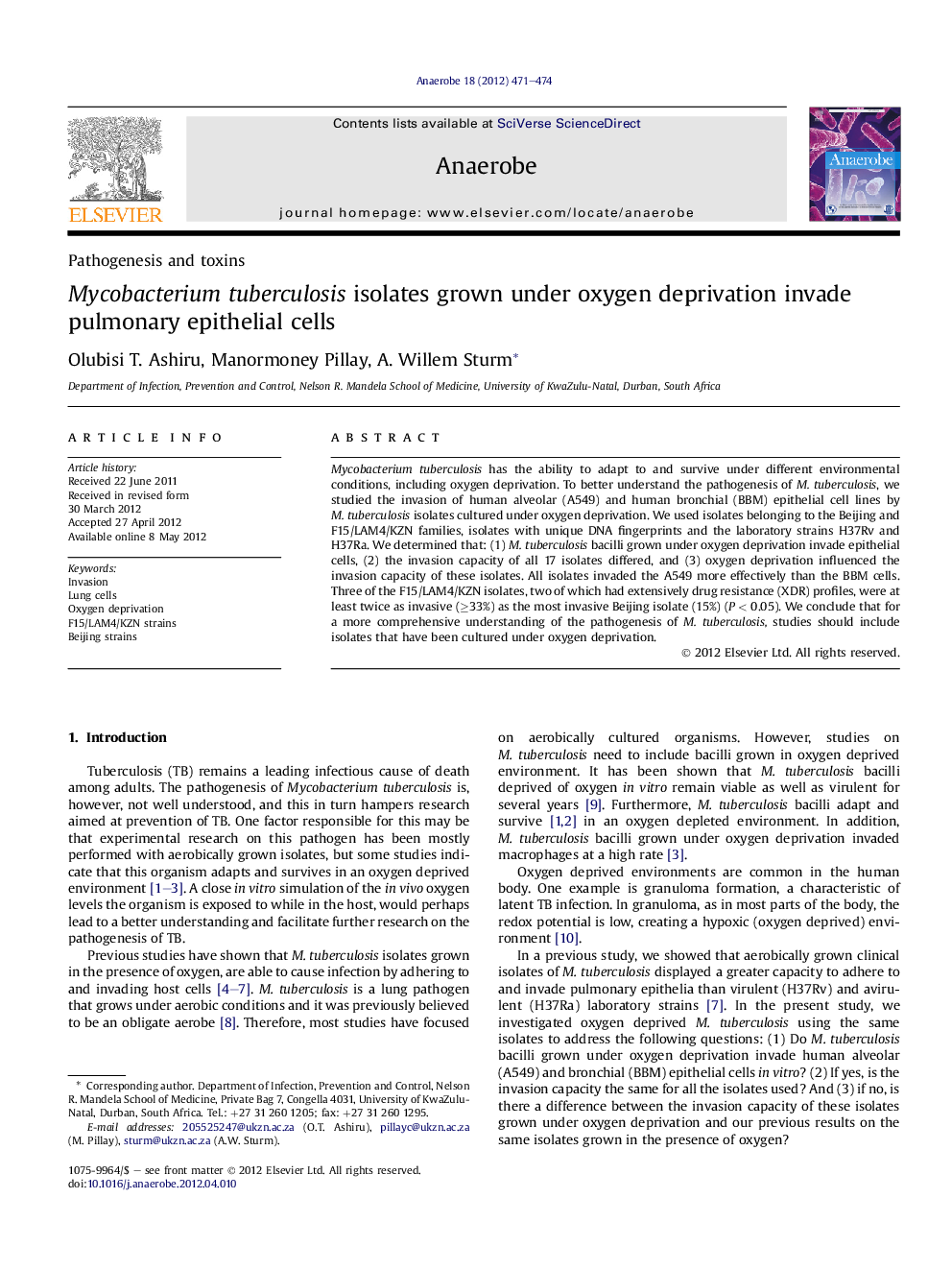| Article ID | Journal | Published Year | Pages | File Type |
|---|---|---|---|---|
| 3395333 | Anaerobe | 2012 | 4 Pages |
Mycobacterium tuberculosis has the ability to adapt to and survive under different environmental conditions, including oxygen deprivation. To better understand the pathogenesis of M. tuberculosis, we studied the invasion of human alveolar (A549) and human bronchial (BBM) epithelial cell lines by M. tuberculosis isolates cultured under oxygen deprivation. We used isolates belonging to the Beijing and F15/LAM4/KZN families, isolates with unique DNA fingerprints and the laboratory strains H37Rv and H37Ra. We determined that: (1) M. tuberculosis bacilli grown under oxygen deprivation invade epithelial cells, (2) the invasion capacity of all 17 isolates differed, and (3) oxygen deprivation influenced the invasion capacity of these isolates. All isolates invaded the A549 more effectively than the BBM cells. Three of the F15/LAM4/KZN isolates, two of which had extensively drug resistance (XDR) profiles, were at least twice as invasive (≥33%) as the most invasive Beijing isolate (15%) (P < 0.05). We conclude that for a more comprehensive understanding of the pathogenesis of M. tuberculosis, studies should include isolates that have been cultured under oxygen deprivation.
► Mycobacteriumtuberculosis bacilli grown under oxygen deprivation invades epithelial cells. ► Invasion rate of all 17 M. tuberculosis isolates differed. ► Oxygen deprivation influenced the invasion capacity to the M. tuberculosis isolates. ► Two of the three M. tuberculosis XDR isolates were the most invasive.
